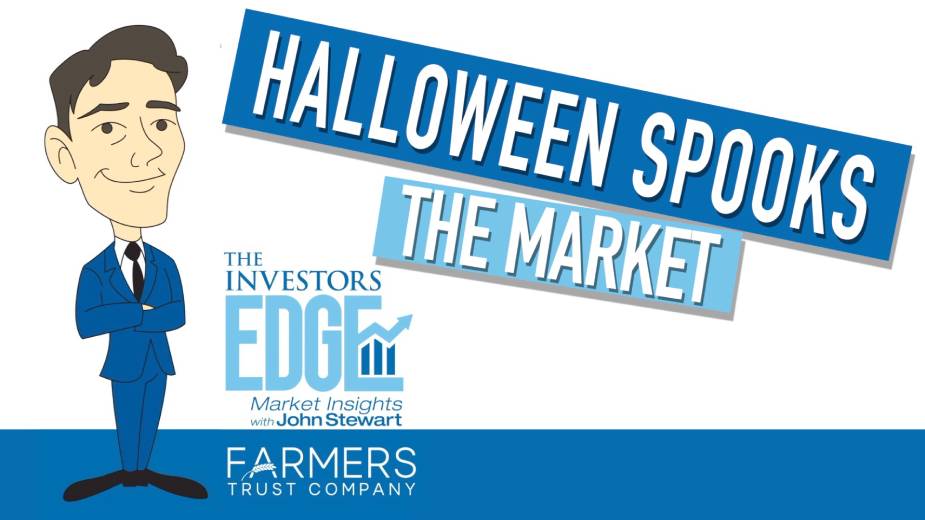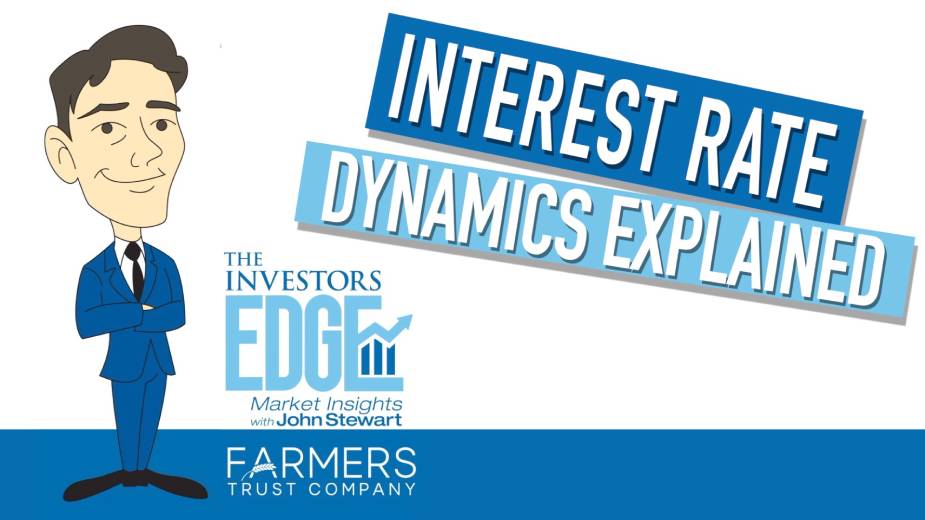Bonds Mature | The Investors Edge
By John Stewart, chief investment officer at Farmers Trust Co.
Week in Review: Volatility Goes Wild
Financial market volatility reached new heights this past week as stocks experienced a roller coaster ride of ups and downs. The bond market didn’t sit out on the action either with wild swings in interest rates caused by central bank exploits attempting to both rein in inflation and stave off economic meltdown.
Massive declines in currency values around the world relative to the U.S. dollar (most notably the British Pound) have added to the angst of investors as they try to determine when this wholesale liquidation of assets will subside.
The U.K. has implemented aggressive interest rate hikes, tax cuts, and most recently central bank purchases of long-dated bonds in an attempt to have their cake and eat it too. That is, they’re trying to curtail inflation and stimulate economic growth at the same time. A persistent decline in the value of the pound suggests their efforts are at best inadequate, and at worst, counterproductive.
Central banks around the world – including our Federal Reserve – are dealing with the consequences of decades long ultra-accommodative monetary policies that produced asset price bubbles and inflation rates unseen in more than 40 years.
They are now realizing that they face a Hobson’s choice, and the only way out is to let economies and markets correct while putting us on a path to a more sustainable future.
Featured Insight: Bonds Mature
With both stocks and bonds losing value this year, many investors are prone to panic and sell losing investments in fear of further declines in the value of their assets.
For long-term investors, this is never a good idea, but it is especially not a good idea when it comes to your individual bond holdings. Individual bonds mature at a set date in the future and you know exactly how much money you will receive at maturity.
If your 25,000 bond that matures in 3 years is trading for 20,000 today, you would be foolish to take the loss knowing that you will receive the full 25,000 plus interest upon maturity as long as you wait it out.
Stock investments have no such certainty in terms of how long they may take to return to a particular price level, although they have always trended higher over the long run.
Bonds, on the other hand, can still give you plenty of comfort in knowing exactly what kind of return you’ll get over time, provided that you understand how they work.
Looking Ahead: Fed to Hike Again
With the third quarter now in the history books, we are anxiously awaiting corporate earnings reports that will begin coming in fast and furiously starting in a couple of weeks.
Despite the more than 20% decline in the major stock market averages this year, the downward revisions to the earnings outlook have been relatively modest.
As always, markets are anticipatory mechanisms based on future expectations. Therefore, it is likely that third quarter earnings reports could bring with them significant reductions in earnings estimates for the fourth quarter and into 2023.
The question will be, are those reductions worse than what the market already expects and what is already “priced in” to stocks. I guess we’ll just have to wait and see.
Copyright 2024 The Business Journal, Youngstown, Ohio.


